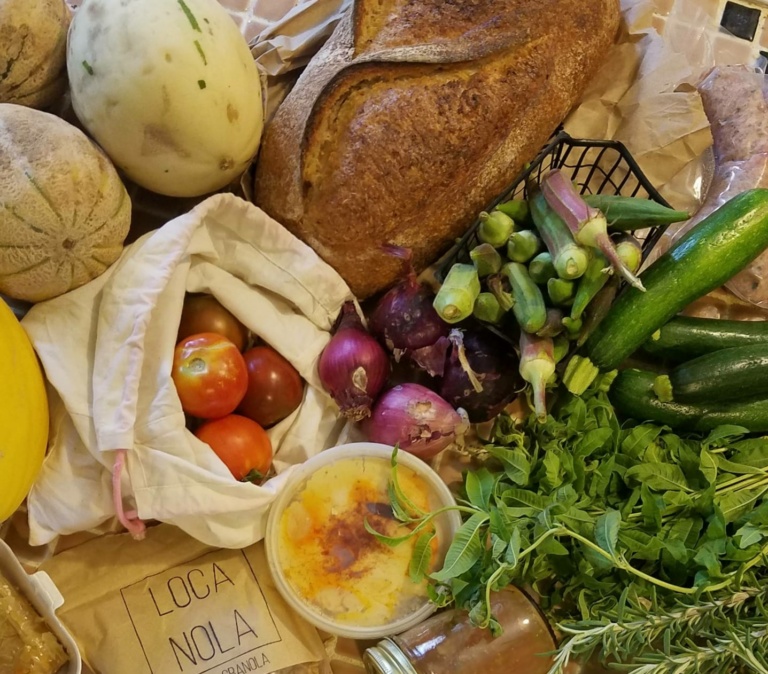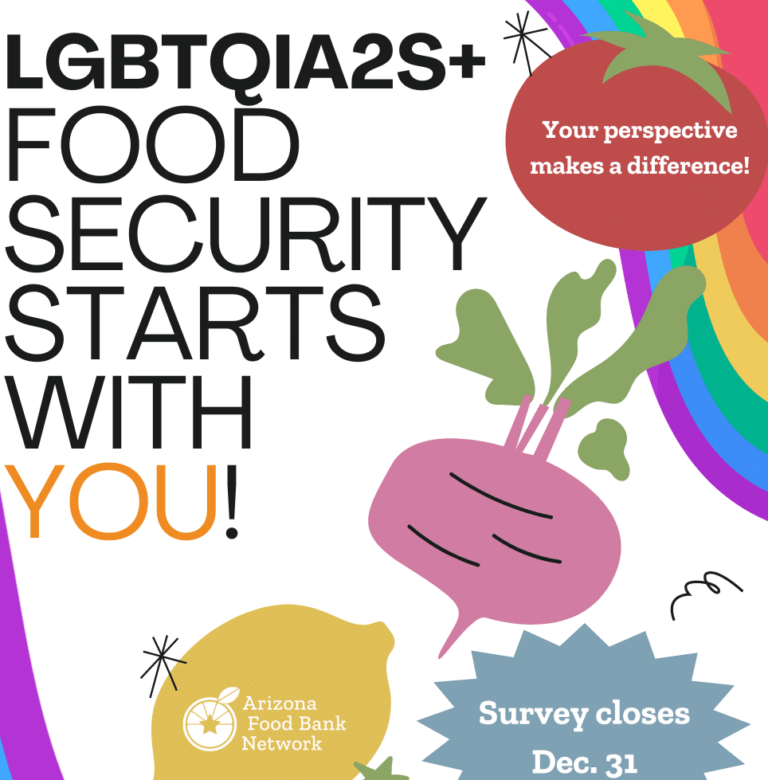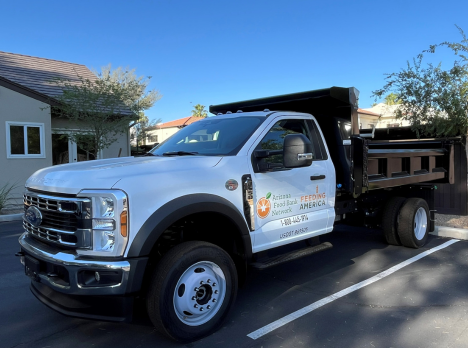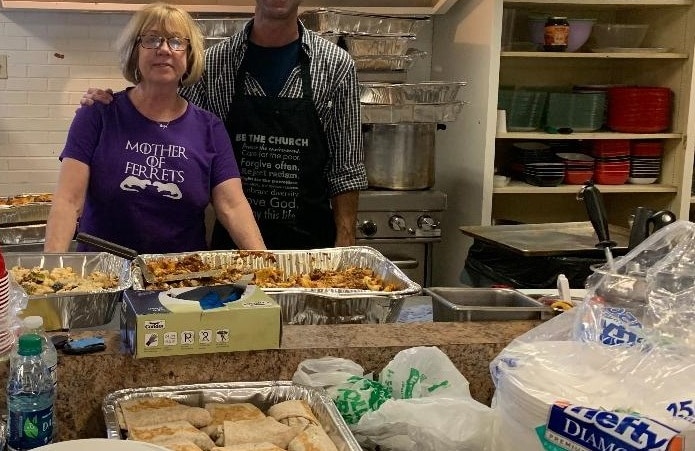From the perspective of Randee Gleason, AzFBN Development Manager
In 2021, like most of us, I was feeling burnt out and isolated. I was looking for meaningful community, safety, and above all, I wanted to do something. I wanted to help.
I came across a page on Instagram with a bright yellow profile picture, and the top post read, “We need drivers!” arching over a car with a rainbow pride flag sticker on the passenger-side door. A new grassroots organization needed volunteers to deliver groceries to queer and transgender people in Phoenix. I signed up. I showed up.
I was drawn in immediately: just a few people loading up a few boxes with a small collection of donated pantry items, then taking those boxes directly to doorsteps. I was enamored with the simplicity and warmth. I came back again and again.
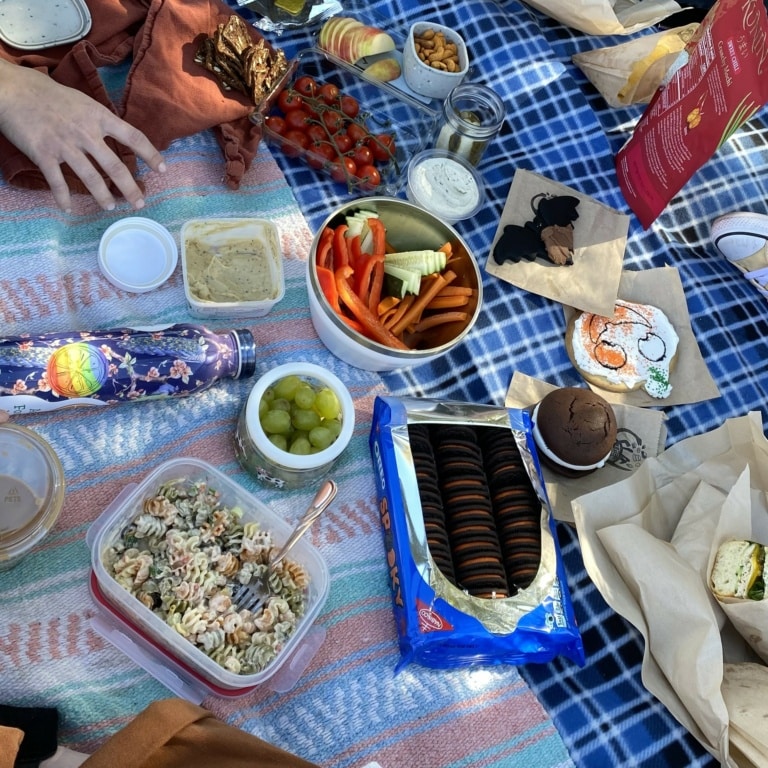
Every time I stepped into that room it was more crowded, but I felt a sense of calm, comfort amongst other people who wanted to help. We’d start with a few minutes to introduce ourselves, share something. It was a space where we were unabashedly ourselves, whoever that was. Our pronouns were respected, our fears were shared, our dreams were supported, our hands held. And it showed in the work.
I began to recognize the spark in someone’s eyes when they realized we weren’t “just” delivering food, but, sharing in it. I saw longtime volunteers-turned-friends lose loved ones, graduate college, change jobs, struggle to find their place, and turn to our community for support or celebration.
Food was often shared among the volunteers—someone would bring in banana bread they made with the fruit that couldn’t be sent to families the week before; we’d find a vegetable in the farm donations that nobody had tried before, slice it up and sample it amongst ourselves, exclaiming in surprise (or, if I’m honest, sometimes disgust!) at the flavor. There was a coffee shop next door where disposable cups were marked with names and lined up on the windowsill. Cold water bottles were always handed out.
Leftover food was always offered to volunteers in the way a grandmother might send you home: against your insistence that you don’t need anything. We have plenty to share.
New volunteers were reluctant to take food for themselves. Over time, they understood: all of us deserve to eat. The vast majority of us had, at one time or another, been unable to afford basic necessities. Our needs aren’t one to one, our time is a finite resource just like food. We all have something to contribute whether it’s time, food, money, knowledge, support, or art.
“We’re feeding our community,” I’d tell them. “You are the community.”
I always left those volunteer days feeling better than when I got there. I often reflect on this ritual as a carrying-on of tradition. I’ve heard elders say that potlucks were born in the 1950s as a safe gathering for lesbians, as sharing food became survival. There was a need for access to food and a call for safety and community. These basic needs, like many others in the LGBTQ+ community, were fulfilled first by neighbors and friends with a sense of responsibility to care for and protect one another.
The potluck became a space of unity, empowerment, and resistance. With their basic needs met, the LGBTQ+ community can focus on bigger ideas of safety, equality, and progress.
Coming together is how we survive. Anti-queer and trans laws weren’t struck down or, more recently, blocked, by just one individual. More than one person rioted at Stonewall in 1969. The Marriage Equality Act wasn’t passed by one person alone. When we meet each other’s basic needs, as a community, we allow for the work and the art that propels us forward.
Sometimes this work is organized, like at the organization I volunteered with, but more often it’s personal…a chosen family gathering, each person contributing what they’re able and offering other safe options they know of in the community. When we all bring what we have to the table, what’s shared becomes greater than its parts.
A bag of chips, a homemade pie, a kitchen, fruit from the tree in their backyard, their uncle’s homemade pasta sauce, a playlist, a hug, a word of support or advice, a hand to hold, a ride home. There’s inherent trust in accepting help, and vulnerability becomes strength instead of weakness; it’s a place for other people to plug in instead of an excuse to isolate.
“In a world that relies on our separateness to divide and weaken us, shared meals are cultivation space for our unity,” Frances, a friend and fellow volunteer, told me. “The food sustains us as much as our gathering.”
Every day I see more and more community members experiencing this care and kindness, but not everyone has access to it. People who identify as LBGTQ+ are much more likely to experience food insecurity, according to a national study published in 2022. The Arizona Food Bank Network has been traveling all over Arizona in the last few months, attending Pride Festivals and conducting focus groups regarding food insecurity to gather first-time data about gaps in services, unique barriers to resources, and overall need amongst the LGBTQ+ community in the state.
I’m so grateful that I have the resources to give help, the grace to receive help, and the community to provide it to those who need it. To better meet the needs of all Arizonans, the Arizona Food Bank Network will be publishing a report of survey and focus group findings in 2025 to illustrate the challenges of this population and create solutions in partnership with the community.
Learn more, be part of our survey collection, or donate to this research at azfoodbanks.org/lgbtqia2s.
